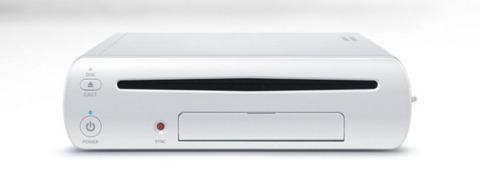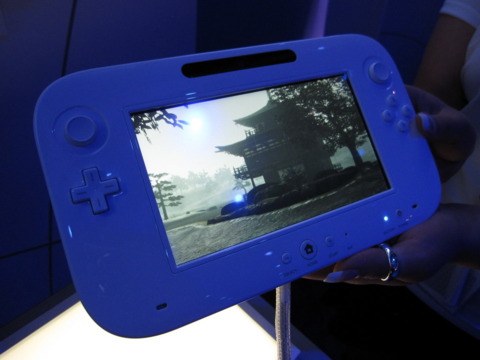Reality Check: The Dangers of Gimmick Gaming
Is Nintendo's way the right way?
Back in the early part of this century, Nintendo was going through hard times. Sony's emergence in the console world wrested away Nintendo's ironclad hold on the industry, and disappointing sales for both the Nintendo 64 and GameCube, along with mediocre third-party support across the board, left many people wondering if Nintendo still had a future as a hardware manufacturer. When Microsoft established itself as a beacon for Western game development, it became clear that Nintendo needed to do something to separate itself from its competitors and lure consumers back into the waiting arms of Mario and company.
Everything changed when the Nintendo DS was revealed. In that era, new systems were typically more powerful versions of older platforms with a few extra buttons or sticks on the controller. But the NDS went in a completely different route. By implementing touch-screen controls and two screens, it opened the door for a new way to play games. Once developers realized the wealth of possibilities at their fingertips, the quality of games soared, and the system flew off store shelves. Moreover, by creating games such as Brain Age and Nintendogs, Nintendo tapped into a market that previously ignored video games. And with their runaway success in the casual market, Nintendo had found a new area to place their focus.
You can see these beliefs manifested in the Wii. Like the NDS, the Wii went a different route than what you would normally expect from a new console. Although the console was underpowered compared to its peers, the motion control system was indeed a revolution. Nintendo also started focusing on the casual segment in a huge way. The Wii Sports and similarly titled series of games hooked people who normally turn their nose up at the very thought of playing a video game, and it was almost impossible to get your own Wii because stores couldn't keep them in stock.
Still, Nintendo has set off down a scary road with its more recent batch of hardware--trying to repeatedly reinvent the wheel is just not a sustainable idea. By establishing that new systems have to come with a unique hook, Nintendo has to match people's expectations for a mini revolution with each new announcement. The Nintendo 3DS continued this trend by offering 3D gaming on a portable screen, but this is a significantly smaller leap than its previous systems. Instead of changing how games are played, the 3DS offers a slightly different view of the action, so it has a much more difficult time convincing new and veteran gamers why they should jump into the 3DS fold. Systems are ultimately bought and played because of their library of games, and we have yet to see anything from developers that suggests the 3DS can open up new gameplay possibilities.
Then there's the Nintendo Wii U. Once again, Nintendo couldn't just announce a more-powerful system with a traditional controller and call it a day. People now expect gaming to change forever when a new Nintendo system is announced, and the Wii U tries valiantly to live up to that idea. But it doesn't. From the details that are available now, the new controller seems similar to what we already played with the GameCube/Game Boy Advance connectivity. It's telling that the premier demo at E3 was Chase Mii, a variant of Pac-Man Vs., a game Nintendo released almost eight years ago. The Nintendo DS and Wii offered new control inputs, which immediately changed how people interacted with games. But fundamentally changing video games every couple of years is an impossible prospect. There are only so many ways to control a video game, and we have more options now than ever before.
Touch screen, motion controls, cameras, microphones, buttons, sticks, and who knows what else already exist. Game development now is about making games for whatever system offers the best control scheme, so Nintendo is backed into a corner when it comes to new ideas.
The most disappointing thing about the announcement of the Wii U is that Nintendo focused on the pedestrian hardware instead of showing off previously unheard-of games. One of the reasons Nintendo has flourished through the years is that it's a game company first and foremost. Creating imaginative and exciting experiences is the sole reason it exists, and Nintendo uses the power of fun to sell people its hardware. It sounds cheesy, but that's the truth.
At its press conference, Nintendo needed to show why the Wii U needs to exist. It needed to introduce a new IP that could exist only with this tablet system, or an innovation for an older game that showed off all the neat tricks you'll be able to pull off. Imagine if instead of showing us the evolution of Pac-Man Vs., Nintendo had demonstrated a new Animal Crossing that did for the Wii U what Wii Sports did for the Wii--a demonstration of how the tablet controller can change how you play games. Instead, I'm left wondering how it's different from the 3DS. A touch screen, camera, gyroscope, two screens, and all the rest are already on Nintendo's latest handheld, so what new experiences is the Wii U capable of?
I still believe Nintendo could revolutionize gaming with the Wii U, and maybe it's just holding its cards close to the vest. But that belief stems from my stubbornness. I want this system to be great, so I'm cautiously optimistic that it will pan out. The problem is that Nintendo has put too much emphasis on being different rather than being good. Its focus used to be on making the best games possible, but now it's so invested in offering up gimmicks that I fear it has lost its way.
Got a news tip or want to contact us directly? Email news@gamespot.com



Join the conversation